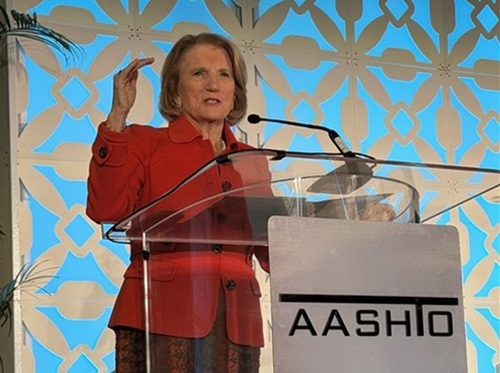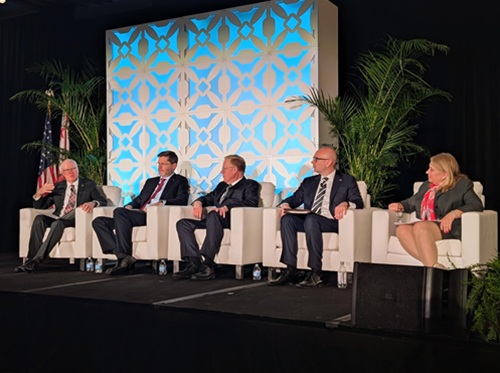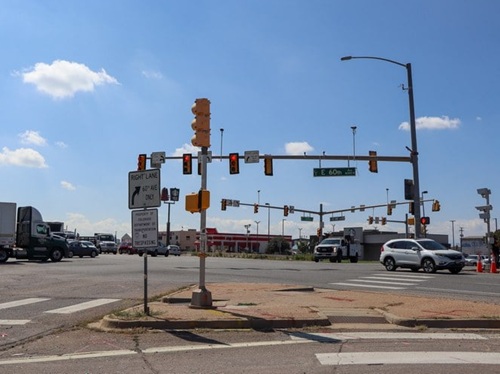The American Association of State Highway and Transportation Officials recently asked the Federal Highway Administration to delay the implementation of the new “Build America, Buy America” or “BABA” manufactured products rule until it has completed its forthcoming rulemaking on the waiver process.
[Above photo by Colorado DOT]
The issue stems from a long-awaited update issued by FHWA in January to the BABA rule that rescinded a 42-year-old “general applicability waiver” for manufactured products and introduced a new 55 percent domestic content requirement for a host of construction materials.
The final rule – which went into effect on March 17 – terminated FHWA’s general waiver for manufactured products starting on October 1 this year and implements the new 55 percent domestic content requirement on October 1, 2026.

In a letter to FHWA, AASHTO also asked for “guidance and resources” to help state departments transportation navigate this major BABA policy change, noting that state DOTs use a broad range of manufactured products on projects supported by the Federal-aid Highway Program, many of which are not – or have significant components which are not – readily available domestically, including such products as traffic signals, cameras, luminaires, controllers, cabinets, changeable message signs, traffic management system components, and utility products. AASHTO noted that “utility products” include pumps and valves, LED [light emitting diode] lamps, lighting systems, and sign reflective sheeting.
In addition, AASHTO requested that the definition of “domestic manufactured” to also include products where 55 percent of components are assembled in the United States.
“Until such time as this framework is established and clear guidance is published, there is substantial uncertainty in the industry due to these categories of products that are not readily available domestically,” AASHTO said in its letter. “Without this new BABA waiver process for manufactured products, states’ ability to carry out the Federal-aid Highway Program will be impacted by delays to project benefits such as improved safety while increasing costs attributable to this uncertainty.”
That being said, AASHTO stressed that it and its members “remain unwavering in our strong support” of the goal of expanding America’s manufacturing capacity in promoting domestic jobs and encouraging economic growth.
“Creating a consistent and clearly understood waiver framework is of central importance to state DOTs and our industry partners,” AASHTO emphasized in its letter. “Delaying BABA’s manufactured products requirements until the waiver process is fully established would provide alignment, regulatory clarity, and a more orderly transition.”
 Top Stories
Top Stories
Congressional Leaders Detail Key Transportation Priorities
February 26, 2026 Top Stories
Top Stories

